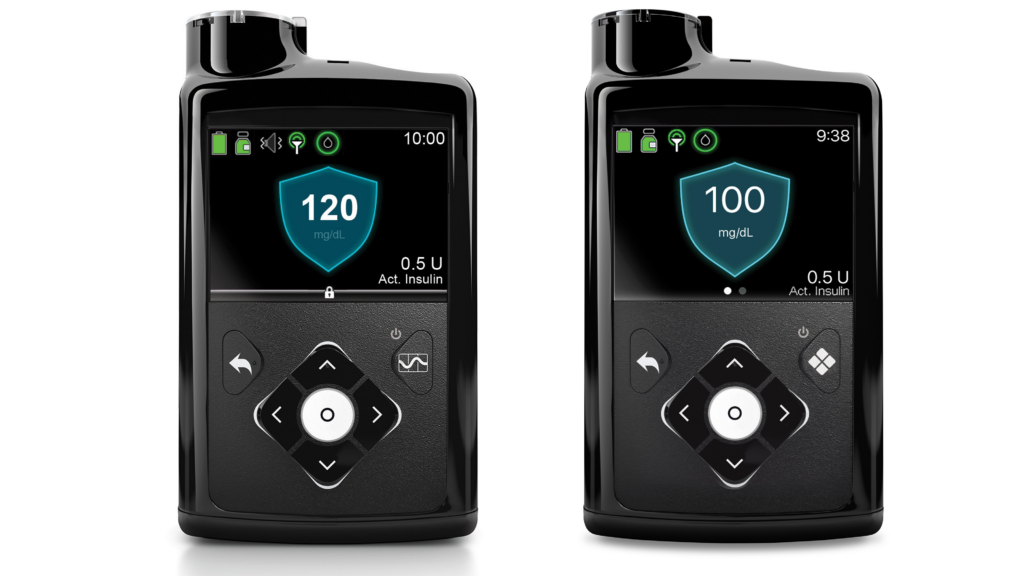The US Food and Drug Administration (FDA) has issued a Class I label for the recall of Medtronic’s MiniMed insulin pumps.
Medtronic released a safety notice back in July implicating more than 785,000 pumps due to the potential of damaged electrical components, including its battery, after physical impacts like bumps or falls.
However, after a “comprehensive analysis,” Medtronic found that dropping, bumping or hits to the device could shorten the pump’s battery life by damaging internal electrical components. This prompted the FDA’s class I tag, the highest and most serious type of recall.
“Even a single drop could result in reduced battery life, either immediately after the drop, or over time, and will continue to affect the pump even after replacing the battery,” Medtronic said in a statement.
The recall affects over 785,000 units, specifically the Medtronic MiniMed 600 series and 700 series. The devices are used to regulate blood glucose levels by delivering precise amounts of insulin based on readings from an integrated continuous glucose monitor (CGM). The pumps are mainly used by people with type I diabetes, but type 2 diabetics can also use them to regulate their glucose levels.
If components of the MiniMed insulin pump could malfunction, this could lead to incorrect insulin dosing.
XTALKS WEBINAR: Characterization of Microneedle Products: Useful Methods and Approaches
Live and On-Demand: Monday, November 18, 2024, at 11am EST (4pm GMT/UK)
Register for this free webinar to gain insights into microneedle array patches and how the challenges of bringing this groundbreaking drug delivery technology to market can be overcome.
Medtronic stated that, even with compromised battery life, the pump will still generate alerts and alarms; however, these notifications may occur with less battery life remaining than usual, potentially requiring a battery replacement sooner to prevent interruptions in insulin delivery.
It has advised users to replace the battery as soon as the “low battery pump” alarm sounds. If the battery is not replaced when the “replace battery alarm” or alert appears, this may stop the delivery of insulin. Prolonged periods without insulin delivery can pose health risks such as hyperglycemia or diabetic ketoacidosis (DKA).
Specifically, the FDA outlined that the defect “shortens the time between low battery alarms and increases the frequency with which the user must insert a new battery.”
It noted that the defect could also lead to the low battery alarm when there is significantly less time before the battery completely runs out. There is an up to ten-hour buffer at the “low” alert mark, but this timing could be compromised, which could result in the device powering off and stopping insulin delivery unexpectedly.
According to Medtronic, a subset of pumps with the defect issued a low battery alert approximately 2.5 hours before the device shut down, but patient reports suggest that the warning time could be even shorter.
Concerningly, the FDA noted that replacing the battery will not fix the issue as the shortened battery life and reduced warning time for low battery alerts will persist.
Medtronic also reported that between January 2023 and September 2024, it received 170 reports of hyperglycemia above 400 mg/dL and 11 cases of DKA in the US “potentially linked to this problem.”
Related: Baxter Issues Class I Recall for Volara System Circuit and Ventilator Adaptor
“Medtronic began proactively notifying impacted pump users in July because of the high priority we place on patient safety and understand the important role of pumps in the care and management of diabetes,” said Robert Vigersky, MD, chief medical officer, Medtronic Diabetes, in the company’s press release.
Medtronic has been plagued by recalls of its insulin pumps for the last several years. In 2021, the company issued a class I recall of remotes for its MiniMed 508 insulin pump over the potential of cybersecurity risks. At the same time, it also issued a recall of its 600 series pumps due to a faulty component in the pump’s retainer ring, which is responsible for securing the insulin cartridge in place. A damaged or loose retainer ring can result in the cartridge not being fully locked into position, causing the pump to deliver too much or too little insulin. This can result in hyperglycemia or hypoglycemia.
The diabetes device industry faced another major recall recently when Abbott’s widely used FreeStyle Libre 3 CGM was found to have sensor-related issues. The FDA also classified this recall as Class I.
If you want your company to be featured on Xtalks.com, please email [email protected].












Join or login to leave a comment
JOIN LOGIN